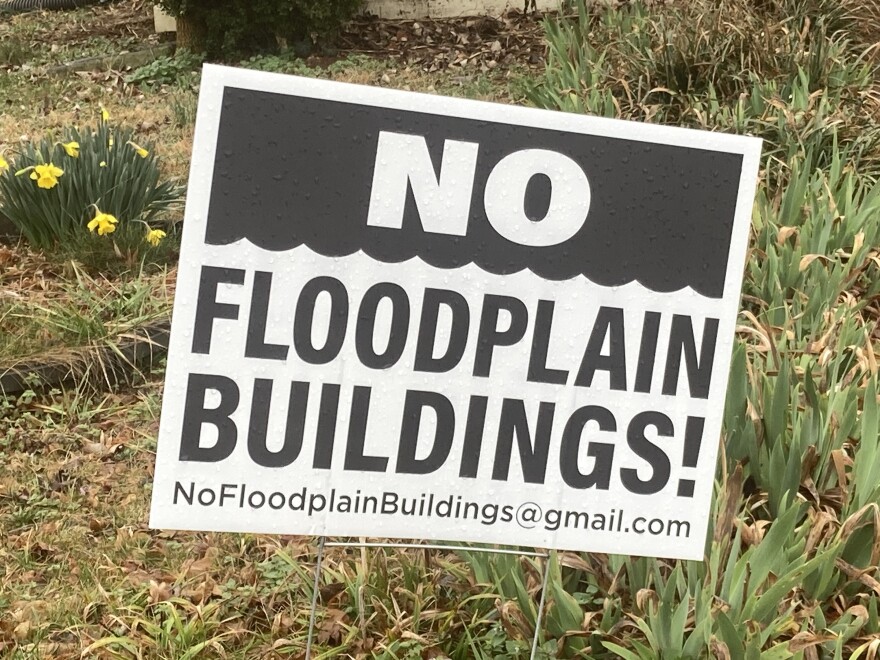For decades, this land along the Rivanna River was home to traveling carnivals and circuses with thousands of people coming to see elephants, tigers, clowns and high-wire acts. On occasion these 21 acres were known to flood, and in 1959 dozens of carnival workers lost their homes when their trailers were swept away.
Now, a developer hopes to put up three four-story buildings, providing 245 apartments and 320 parking spaces. Rebecca Riley, who lives on a street adjoining the land, objects.

“We have had flooding as close as our backyards," she explains. "If there were people living back here not only would that be pretty dangerous for them but for their possessions, their cars and the emergency personnel who would need to get in and out.”
The situation was described on a neighborhood blog where Hank Perritt, former dean and professor of the Chicago Kent College of Law, read about it.
"I thought, ‘That’s a really bad idea to build multi-family housing right in the flood plain of the river,’ so I e-mailed Becca Riley and said, ‘If you need a lawyer, I’ll represent you pro bono,'" he recalls. "She got back to me right away and said, ‘I accept!’"
So far, city council has refused to approve the project. If it does, neighbors plan to challenge the decision in court. By law, FEMA bars construction in what’s called a special flood hazard area or floodway, but Perritt says the old circus grounds were recently reclassified at the request of the developer’s engineer.
“The boundaries of the so-called flood way, which is a more restrictive part of the flood plain, were redrawn by the developer’s civil engineer. The data that he submitted are questionable, and the city engineers were opposed to redrawing the floodway, but for some reason the city manager approved it, and it was redrawn just enough to permit this development in the flood plain.”
James Groves is also skeptical. He’s a professor of engineering at UVA who was surprised to learn that landowners can request reclassification through a licensed engineer, and many of those involved in changing U.S. flood maps are not on FEMA’s payroll.
“I imagined FEMA civil servants doing this work, and if you go back to 2005 you can say yes, it was FEMA and their mapping partner at that time was the U.S. Army Corps of Engineers, but it’s my understanding that’s not the way it’s done at the moment. FEMA is working with contract partners.”
The engineer working to develop the old circus grounds insists it will not cause problems for people downstream or for residents of the new apartment complex. He plans to bring in hundreds of tons of dirt to raise the construction site, and he’s pledged to build a retaining wall to protect the property from future flooding.
But Groves is worried.
“What FEMA says in their guiding documents is that the best data to compare your prediction against is historic flooding that’s occurred on the river.”
He says FEMA did not do that, and it’s not taking climate change into account when redrawing flood maps.

Meanwhile, Rebecca Riley and her neighbors have formed the Circus Grounds Preservation Corporation to raise money for purchase of the land which they say they’ll donate to the city.
“My kids go to parks around here all the time. Sometimes they’re wet when you go, and that’s fine. Sometimes that’s the fun of it.”
And as this drama plays out in Charlottesville, FEMA is dealing with dozens of cases in other parts of the state where landowners have asked for a redrawing of flood maps.

